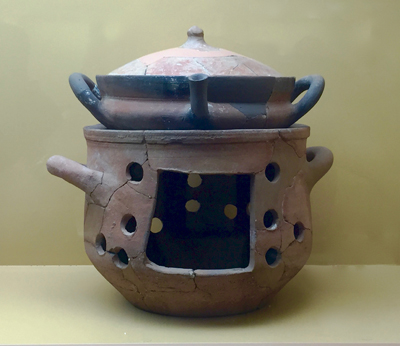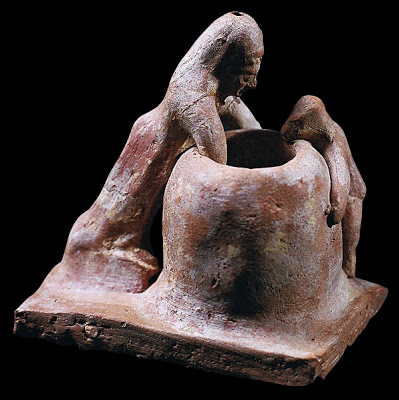What was the role of cooking and eating in the social and economic transformation of the ancient Mediterranean?
What was the role of cooking and eating in the social and economic transformation of the ancient Mediterranean?
Ana Delgado, senior lecturer of Prehistory with the Department of Humanities, is a principal investigator of the research project “Foods, kitchens and consumption practices in Mediterranean colonial areas (8th - 5th centuries BC)”

What was the role of cooking, food and eating in the local and global transformations that took place in the Western Mediterranean between the 8th and 5th centuries BC? How did the arrival of the Greeks and Phoenicians, with new cultures and new foods, transform the Mediterranean foodscape? What was the role of these everyday practices in building new Mediterranean communities and social identities?
These are some of the challenges to be addressed by the research project “Foods, kitchens and consumption practices in Mediterranean colonial areas (8th - 5th centuries BC)” (HESTIA), which will be conducted by the Mediterranean Archaeology Research Group at UPF: Connections, Materials and Writing (GRACME).
The project, which has received a grant of 53,361 euros from the Spanish Ministry of Economy and Competitiveness in the framework of a call in 2014 co-funded by the European Regional Development Fund (ERDF), will be carried out between 2016 and 2018, and will involve Ana Delgado, senior lecturer of Prehistory with the Department of Humanities, as principal investigator.
The research team also includes Meritxell Ferrer and Mireia López, postdoctoral scholarship holders Beatriu Pinós and Marta Santos, director of the Archaeological Museum of Catalonia (MAC) - Empúries, in collaboration with other researchers and institutions (Museum of the Terres de l'Ebre, Junta de Andalucía and Joukowsky Institute for Archaeology-Brown University).
All together they will analyse the changes in diet, forms of cooking and preparing food and means of consuming food and drink experienced by the different Mediterranean communities between the 8th and 5th centuries BC, as well as their culinary traditions and technologies and their conceptions of the body and of corporality linked to diet.
Analysis of five different Mediterranean dietary environments

The project will study the persistences, innovations, transformations and hybrids that took place in this area in five colonial or empirical scenarios of the Western Mediterranean: Lower Guadalhorce (Malaga) Lower Ebro, the area of Empúries, the Bay of Oristano (Sardinia) and Western Sicily.
It will analyse how the new foodscapes that came into being in these five areas were largely the result of the intense connections and contacts between areas, people and communities of different origins who profoundly shaped the local and global history of the Mediterranean during the first millennium BC.
These interconnections – now considered by some as a kind of globalization-led to movements of people, technologies, recipes, plants, animals, food, tableware, kitchen recipients, tastes and habits of consumption that transformed the meals and the kitchens of Mediterranean homes and communities.
Foodscapes: an innovative perspective
The research incorporates an innovative perspective, based on foodscapes, a concept that has recently been included in archaeology studies. It is an approach that allows exploring the creation of new culinary and consumption cultures in specific social contexts affected by migration, or embedded in networks of connections through which people, food and culinary technologies move.
This concept includes consumer cultures and gastronomies from viewpoints that are not static but rather as heterogeneous, dynamic and changing habits and practices; in addition, it also allows extending the dominant views that focus on the role of culinary practices and consumption as spaces of nostalgia and self-identification, and highlights the contradictions that arise in the everyday spaces of traditional kitchens.
Finally, this perspective also highlights the major role of everyday fields, of ordinary people and of domestic groups in the historical dynamics of the Mediterranean, both local and global, in which the consumption of food and its preparation play a central part.
